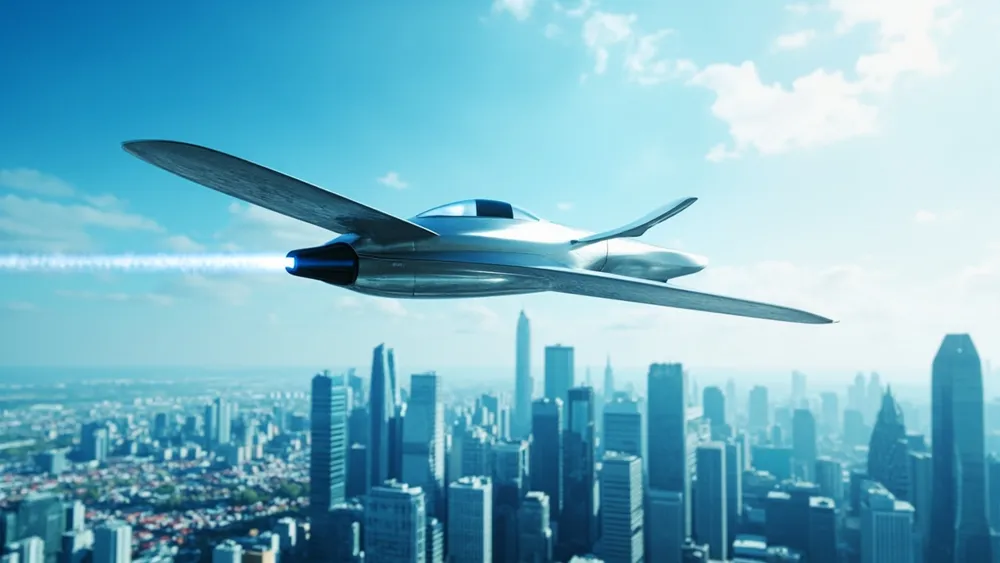Joby Aviation Secures $250M Investment from Toyota: A Shift in Urban Mobility?

Joby Aviation's recent announcement regarding a $250 million investment from Toyota has sent its shares soaring by nearly 29%. This news is not just a spike in stock price—it underscores a significant momentum shift in the electric air taxi sector, which remains in its nascent stages yet holds immense promise for revolutionizing urban mobility. The partnership between Joby, a frontrunner in electric vertical takeoff and landing (eVTOL) technology, and Toyota—a titan in the automotive industry—illustrates a growing confidence among both corporate giants and institutional investors in the viability of next-gen transportation technologies. The implications of this partnership reach far beyond Joby’s balance sheet. This investment allows Joby to expedite its path toward FAA certification and commercial production of its eVTOL aircraft, which many experts argue could alleviate congested urban environments. With Joby already benefitting from Toyota's manufacturing expertise, as highlighted by CEO JoeBen Bevirt, potential advancements in cost efficiencies and design optimizations stand to enhance EBITDA margins. Notably, Toyota's historical involvement, having previously invested $394 million in 2020, reflects a long-term commitment to this venture. Both companies are harnessing synergies that could potentially redefine the landscape of urban air mobility. However, while prospects appear rosy, one cannot overlook the inherent risks associated with such innovative ventures. The air taxi market, though buzzing with excitement, must contend with regulatory hurdles, public acceptance, and the high costs of establishing infrastructure. Moreover, comparisons with previous technological bubbles—such as the dot-com boom of the late 1990s—serve as a cautionary tale. Just as many internet startups faltered when faced with operational realities, Joby may encounter similar disappointments if the anticipated demand for electric air taxis fails to materialize. Isn’t there a risk that our enthusiasm for flying cars could eclipse the practical challenges still in our path? As we look forward, various stakeholders—including investors, regulators, and consumers—must navigate a complex terrain. Institutional investors hungry for disruptive innovations are likely to support ventures like Joby; however, they should remain vigilant regarding market saturation and competitive pressures, particularly from growing competitors like Archer Aviation, which have already partnered with industry heavyweights like United Airlines. Meanwhile, regulators will need to establish frameworks robust enough to ensure safety while fostering innovation in the air mobility sector. For consumers, the potential for reduced commute times and enhanced urban mobility is enticing, but the reality of air taxis becoming part of daily life remains uncertain as both technology and consumer sentiment evolve. In conclusion, while Joby Aviation’s collaboration with Toyota represents a historical stepping stone in the electrification of urban transport, it also highlights the volatility and unpredictability inherent in emerging markets. For institutional investors, the opportunity lies in a balanced perspective: support innovative initiatives while remaining cognizant of the broad landscape and the hurdles that could dampen this revolution in urban mobility.
Read These Next

Nvidia Tops Earnings and Revenue as Data Center Sales Soar 73%
Nvidia's recent earnings report reveals significant growth driven by data center sales, yet faces geopolitical challenges and opportunities in the semiconductor industry.

"US Auto Industry Faces New Sales Restrictions Amid Warnings, Adding to Ongoing Burdens"
US sales restrictions may worsen the struggling auto industry by escalating trade tensions, disrupting supply chains, and increasing consumer costs.

U.S. Crude Oil Inventories Drastically Reduced
API crude oil inventories dropped by 423,000 barrels for the week ending May 23, below the expected 509,000 barrels.
